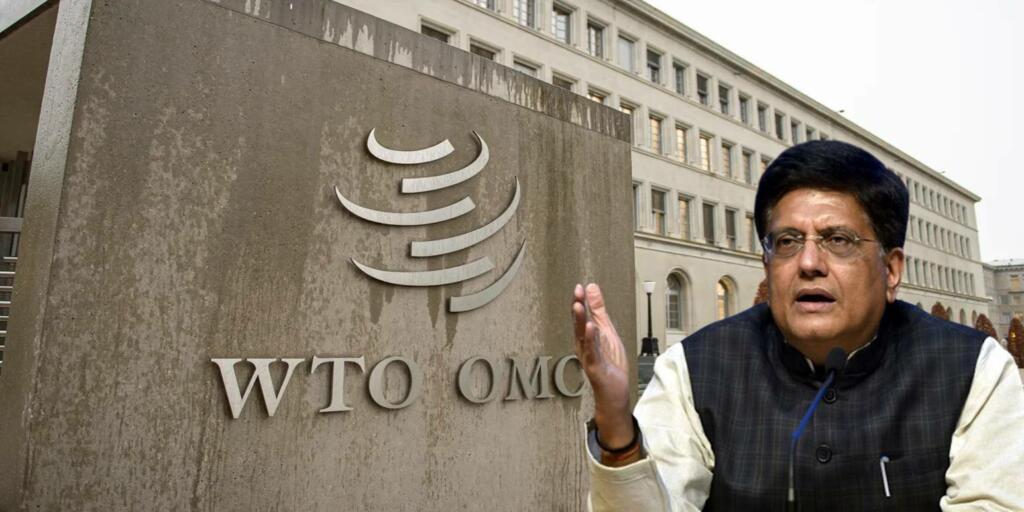The love-hate relationship between Piyush Goyal and the WTO is not going to end sooner. The Indian legend has gone full-throttle on the organisation which claims to ‘regulate international trade’. After asserting his unwillingness to step back on multiple issues like agricultural and fisheries subsidies, he has now proposed to charge export duty on digital products.
Piyush Goyal roars at WTO
At the 12th Ministerial Conference, Piyush Goyal categorically stated that exempting digital products from cross-border custom duties is an unfair discrimination against developing nations. Piyush Goyal pressed for WTO members to take into account the economic, financial and developmental needs of developing nations before finalising any agreement on e-commerce trade.
Informing WTO members that small and medium enterprises in developing countries need space to grow, Goyal said, “I think this moratorium that has been continuing for 24 years needs to be reviewed, re-looked at. The work program needs to be reinvigorated, and must provide regulatory space for developing countries to provide a level playing field to domestic SMEs in the digital sector while continuing to contribute to their economies,…”
Read more: Salute the rising sun, the only thing WTO needs to follow in case of India
The export fee waiver is anti-development
The bone of contention is older than the fisheries subsidy issue. During the late 90s, sell of electronic products in Western countries was inching closer to saturation level. So, they decided to push their products in what they termed as ‘third world countries’. But, custom duties was a big issue. It drastically reduced the profit margin which these companies would make. So, their governments asked WTO to impose a regime in which countries would not charge custom duties on the export of electronic transmission.
But, soon the importing countries realised that they were in for a huge loss. It is not that they do not benefit from these exemptions, but the extent to which this moratorium is structurally tilted in favour of developed nations is the problem. As Goyal apprised the uninformed WTO members that just between 2017 and 2020, countries lost $50 billion. Apparently, out of this humongous loss, 95 percent were borne by developing economies like India.
Emphasizing how much the duty waiver is tilted against developing countries, Piyush Goyal added, “While small exporters of physical products like textiles, handloom, clothing, foot-wear, mainly based in developing countries, are facing both domestic taxes as well as customs duties, the big digital exporters are being exempted from custom duties due to the moratorium,…”
Read more: Piyush Goyal is leading Indian textile to becoming a $10 Billion export sector
Goyal’s expertise in handling textile, handloom among others gives him a special insight on how these waivers are negatively affecting India’s trade potential. The moratorium at WTO is extremely unfair. It is designed to serve the interest of developed countries. More specifically, it is designed to help them continue their hegemony for time immemorial. But, India is not going to accept it and is galvanising like minded nations. Though, the moratorium has been extended for a brief period but soon a structural change is on its way.
